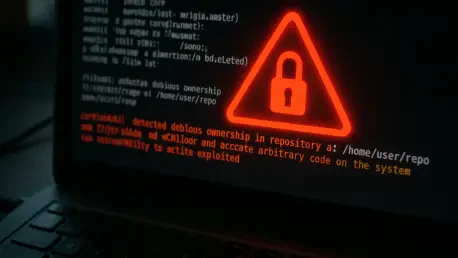In a deeply alarming development for the tech community, a critical vulnerability in Git, identified as CVE-2025-48384, has emerged as a prime target for attackers, with active exploitation already underway, posing a severe risk to developers and organizations worldwide. This flaw, embedded in the widely adopted distributed revision control system, has recently been added to the US Cybersecurity and Infrastructure Security Agency (CISA) Known Exploited Vulnerabilities (KEV) catalog, underscoring an urgent need for immediate action. Publicly disclosed earlier this year, patches have been rolled out across multiple Git versions, ranging from v2.43.7 to v2.50.1. However, despite these fixes, real-world attacks have been confirmed, highlighting the gap between available solutions and their implementation. The severity of this issue cannot be overstated, as it threatens the integrity of countless repositories and the sensitive data they hold. As attackers exploit this weakness, the call for heightened vigilance and swift updates reverberates across the industry, urging all stakeholders to prioritize security.
Understanding the Technical Risks and Mitigation Strategies
At the heart of CVE-2025-48384 lies a dangerous discrepancy in how Git handles configuration values containing control characters like carriage returns. This mismatch, as detailed by security researchers, allows attackers to inject malicious Git Hook scripts, enabling remote code execution during routine operations such as git commit or git merge. By crafting malicious .gitmodules files with exploitable submodule paths, adversaries can manipulate filesystem writes or redirect content through symlinks, potentially overwriting a user’s Git configuration for stealthy attacks like intellectual property theft. Particularly vulnerable are macOS and Linux users, alongside CI/CD build systems running outdated versions. Mitigation requires updating to patched Git versions and avoiding recursive cloning of submodules from untrusted sources. CISA has set a deadline of September 15 for federal civilian agencies to address this flaw, emphasizing its gravity. Developers must also ensure that tools like macOS Command Line Tools reflect the latest updates to prevent exploitation, safeguarding both individual and organizational assets from this pervasive threat.









